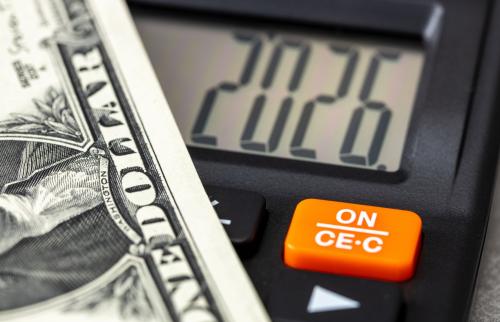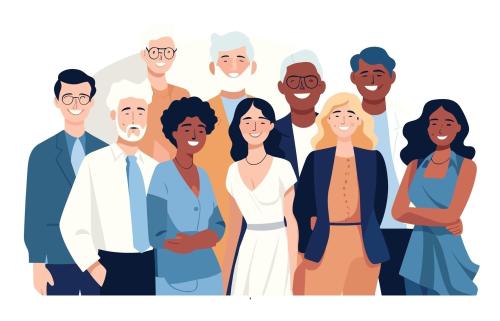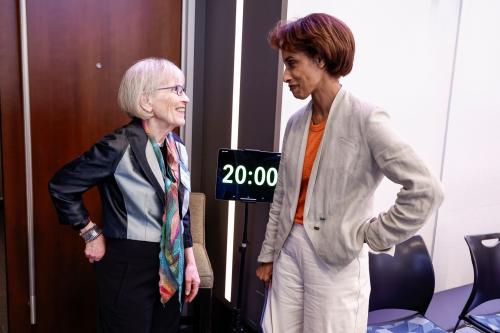Brookings Expert Gregg Easterbrook and Harvard Law School’s Elizabeth Warren discuss the squeeze on the American middle class with Tess Vigeland on American Public Media, Marketplace.
Tess Vigeland: Here’s a benchmark you’ll often hear in discussions about the middle class: are we collectively better off than our parents or are we largely burdened by the so-called “middle class squeeze?”
For answers, we turn to Elizabeth Warren, author of “The Two-Income Trap: Why Middle Class Mothers and Fathers are Going Broke,” and Gregg Easterbrook, author of “The Progress Paradox: How Life Gets Better While People Feel Worse.”
Vigeland: And let’s start, as we’ve been doing throughout the show, by getting your parameters for the middle class. Elizabeth, who do you define as the “middle class”?
Elizabeth Warren: It’s all those people who declare themselves middle class and that means it goes from some pretty low incomes to some pretty high incomes and I think that’s important. A lot of people want to bound it at around $20,000-$25,000 a year up to around $100,000 a year, but I really do think it’s a lot more about enduring criteria. You know, a third grade teacher who gets laid off may not have any income right now, but I would still regard her as middle class.
Vigeland: All right. Gregg, how would you define it, either with a number or a description?
Gregg Easterbrook: I would be more simplistic and just say it’s people who are neither rich nor poor. A lot of it’s sociological but I would say education probably cuts more across it than any other single defining factor for the middle class. Education in a lot of cases just means a high school diploma, but everybody who’s in the middle class now in the United States, the European Union and Japan is a product of a successful educational system and believes in education as a life goal and you couldn’t say that of the average person 100 years ago.
The Brookings Institution is committed to quality, independence, and impact.
We are supported by a diverse array of funders. In line with our values and policies, each Brookings publication represents the sole views of its author(s).



Commentary
The Middle-Class Squeeze
January 11, 2008